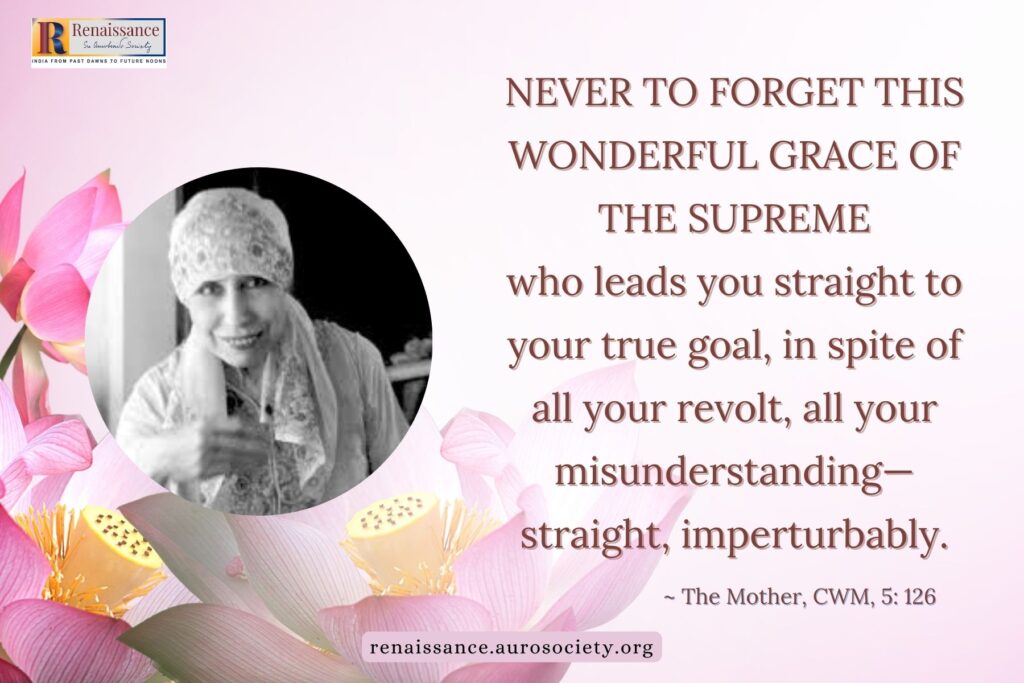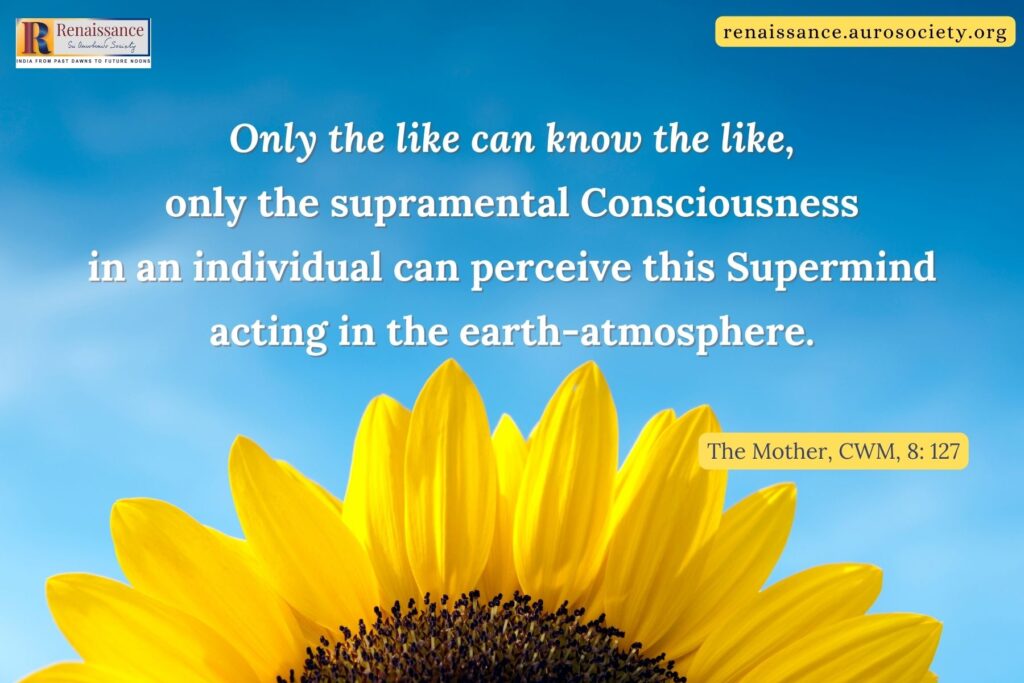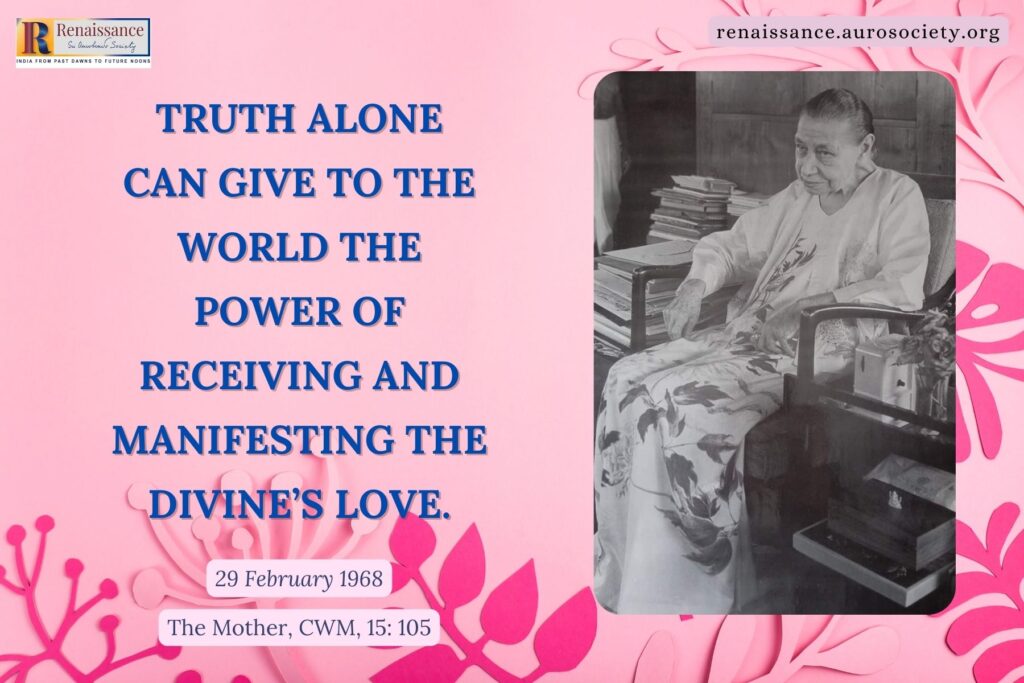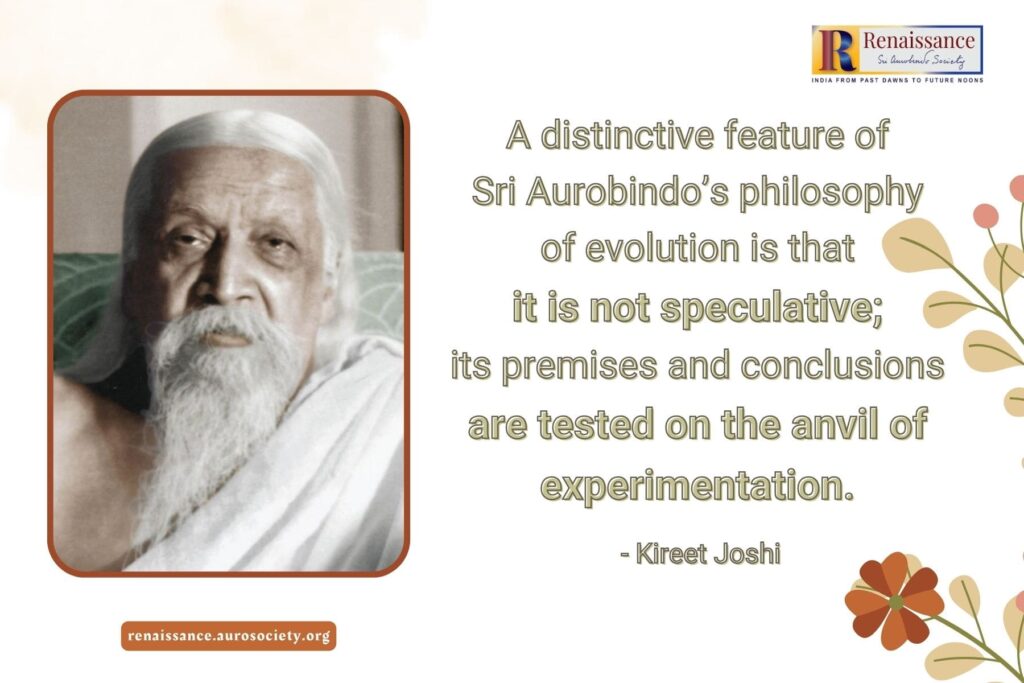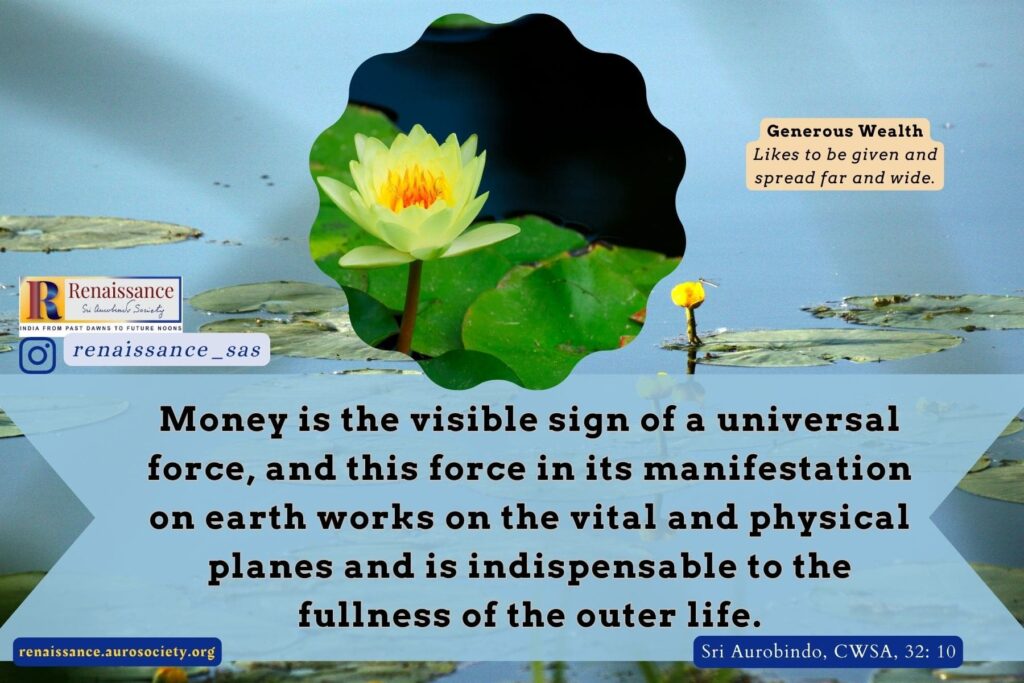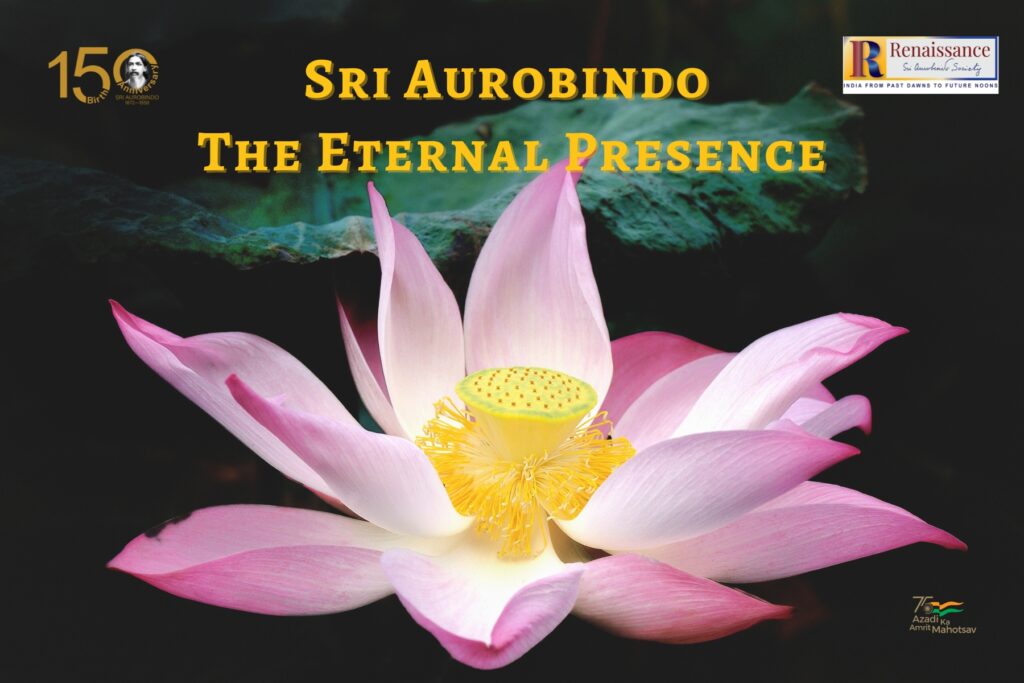Nature, a Collaborator of the New Consciousness (Video)
What is meant by Nature’s consent to collaborate in bringing forth a new world, a New Creation? Read the Mother’s explanation and enjoy a video.
Nature, a Collaborator of the New Consciousness (Video) Read More »



